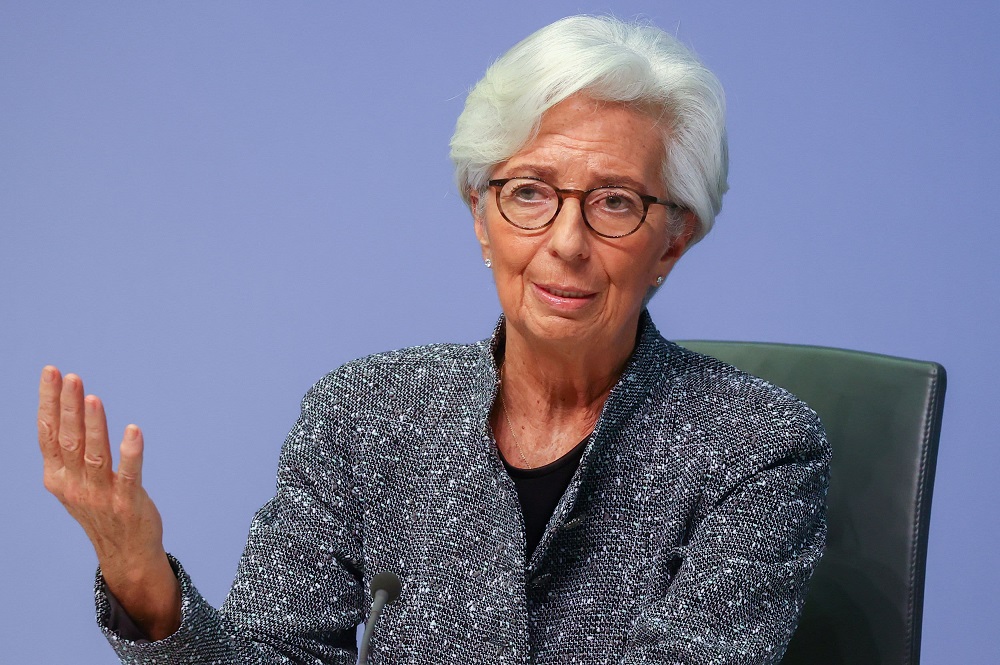New messages from central banks
The Fed, ECB, BOE and SNB all hiked 50-bps while Norges Bank announced a smaller 25-bps hike.

Ms. Christine Lagarde, ECB President
>> US inflation and its implications for the FED's rate hike?
All the increases were as expected but the messages from the central banks showed subtle differences and it is these that seem likely to help dictate financial market trends, at least in the short-term.
The notable difference that we picked up in the messaging by central banks is that the ECB still thinks that there’s a lot to do while the others think they might be close to the end of the road on rate hikes. Only Norges Bank gives a single official rate forecast and it not only seems to suggest that there might be just one 25-bps rate hike left but also said that its rate projections have eased since the last projection in September.
The Fed does not publish a single official forecast; just the individual views of FOMC members that are then collated to form median estimate. And while this increased from last time, to show an end-2023 rate of 5.1%, compared to 4.6% in the September forecast, it is still close to market pricing.
The Bank of England said in November that the market was pitching rates too high and it does not seem as if its view has changed on this even though it delivered the widely-anticipated 50-bps rate hike on Thursday.
The SNB hiked 50-bps as well but its language was somewhat dovish when it only suggested that further hikes could not be ruled out.
The ECB is the outlier amongst all of these banks because it claims that market expectations for the terminal policy rate are too low. They currently stand at around 3% for the deposit rate; or some 100-bps above current levels.
In the UK too, the market is priced for around 100-bps of rate hikes which, as we said, the BoE seems to think may be too high, while the US market is priced for 50-bps more from the Fed. Should we be surprised that the ECB appears to have come across as much more hawkish than the other central banks this week?
For a start, Mr. Steve Barrow, Head of Standard Bank G10 Strategy argues that the ECB is the most naturally hawkish of all the central banks. Don’t forget that it was the ECB that hiked rates in 2009, not long after the global financial crisis when all others kept rates low. Also, don’t forget that a number of hawkish German ECB members such as Weber, Stark and Weidmann have all resigned in the past because they did not think the Bank was sufficiently hawkish.
>> Higher ECB rates won't save the euro
“We think that these episodes, far from creating a dovish drift at the ECB have hardened the resolve of the more hawkish members to push their views. Yet another point we’d make is that the Fed has undergone what we might call a dovish pivot in 2020 when it adopted an average inflation targeting strategy and also announced a subtle shift in its full employment aim to target inclusivity in the labour market”, said Mr. Steve Barrow.
The ECB, for its part, underwent its own review but merely said that the inflation target is 2% and not close to, but below, 2%. Irrespective of the fact that the euro zone clearly faces a much bigger recession risk than the US – and most countries outside of Europe – Mr. Steve Barrow thinks that the 100-bps of extra rate hikes priced in by the market is likely to prove too low while he thinks the 100-bps priced into the UK curve could be too much, and the 50-bps in the US is about right.
But what if the ECB is more aggressive than current market pricing? Will that lift the euro, particularly bearing in mind that it seems almost certain to stop rate hikes at a level that are still some way below the Fed peak? Mr. Steve Barrow doesn’t think the key to euro/dollar is how much the ECB lifts rates. Instead, it is how soon the Fed stops and how quickly it then starts to cut rates. If the answers to these questions are that the Fed stops in Q1 and starts to cut as soon as Q1 2024, euro/dollar will rise even if the ECB falls short of all this hawkishness it is currently projecting. This is because Fed policy holds the key to a rebound in risk assets. Should Fed policy actions spur asset price improvement in bonds and stocks we think it will outweigh any damage that the ECB is likely to do to bonds and stocks from aggressive rate hikes.








